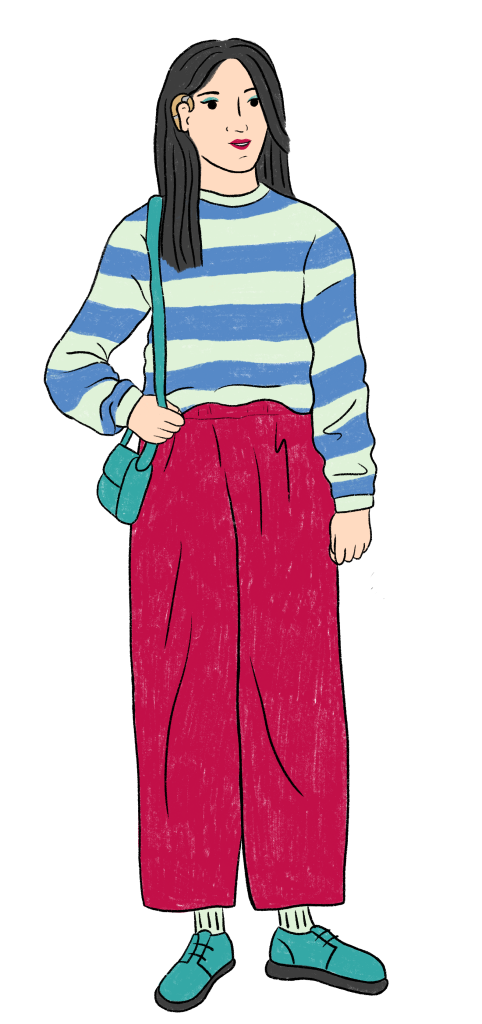Meet Hao, who is hard of hearing. Learn about Hao’s accessibility requirements to better understand how to support students who have similar conditions.
Hao (好) is a 20-year-old student who uses she/her pronouns. Her life motto is “Strategy and teamwork go hand in hand”.
Hao is hard of hearing. Her goal is to have an active social life at uni with friends and team sports, and then begin a successful professional career.
Hao relies on captions, transcripts and lip reading to access conversations and materials. She uses a notetaker to assist with the cognitive load of reading captions, looking at slides, and taking notes in class. Hao suffers from hearing fatigue after a long period of focusing and sometimes requires breaks.
She also relies on visual cues to assist her hearing, which can be difficult when classes take place in darker/dimmed rooms. Classroom layout may impact what she hears when she cannot see the faces of her peers.
Here are some of the things that Hao needs in order to participate in class:
- Captions and transcripts are essential for Hao to access audiovisual materials. Any videos, podcasts or other audio files provided to students should be accompanied by accurate captions and transcripts.
- Live captions are needed for online classes. Lectures/tutors/instructors should use a high quality microphone and speak clearly to ensure as much accuracy as possible for automated captions.
- Hao works with a notetaker in class. Notetakers are employed by the university through the Accessibility Service and are available for any student whose disability or condition impacts their capacity to take notes.
- Having class and lecture materials before the class begins is helpful for Hao, and gives her more time to prepare.
Here are some of the barriers that Hao deals with in everyday life.
- Mishearing, misunderstanding and having to extrapolate or guess what people are talking about.
- Feeling anxiety about developing connections and friendships with others when she can’t hear them.
- Accidentally talking over other people and worrying about interrupting others.
- Missing out on context and important information for tasks or assessments, and performing poorly or failing the task because she didn’t have all the instructions.
Online
- Captions and transcripts aren’t always provided for live or recorded classes or for class learning materials like third-party podcasts or YouTube videos.
- Automatically generated captions and transcripts are not always accurate.
- When the online classes are not captioned and people speak too fast, it is hard to keep up. When people speak too fast, Hao misses out on things that are said and gets lost.
- Delayed captions are not in sync with the class and Hao might not be able to respond at the appropriate time.
- If other people’s faces are not well lit, or they have their cameras turned off, Hao cannot lipread or see facial expressions.
- Online classes are not always recorded, which makes it more likely for Hao to miss out on information when she can’t watch the class again.
On campus
- Group discussions and questions from the teacher are hard to understand against background noise, and it’s not always possible to lip read.
- Some lecturers don’t use microphones in class.
- When using loop/telecoil mode for hearing aids, not all sounds are picked up.
- The infrared system is not compatible with Hao’s hearing devices so she can’t use them in most rooms. Other audio equipment available in on campus spaces (such as headsets in labs) is not appropriate for Hao’s needs.
- Having to constantly adjust hearing aids for different situations can make it hard to keep up.
- Long periods of intense concentration can create hearing fatigue.
The following resources provide information on supporting students who have hearing related accessibility requirements.
These resources show how you can provide captions in your teaching spaces.
Please note
- Everyone’s access needs are different, and what works for one person may not work for another.
- Other health conditions can make access needs more complex or change how they show up day to day.
- Some people may have other disabilities they don’t mention if they aren’t relevant, but these may still affect them at times.
